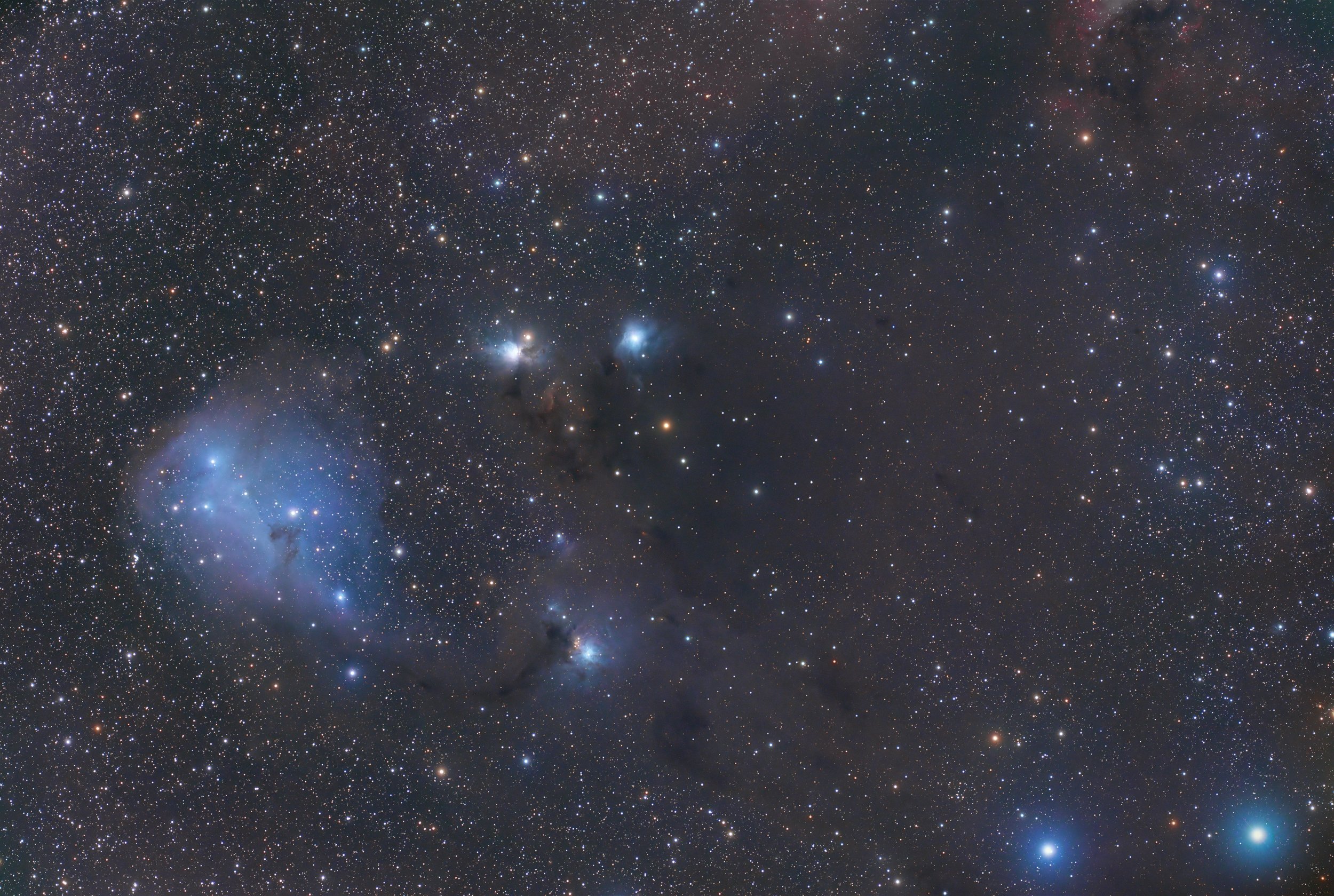
AAPOD2 Image Archives
IC434 - Dusty Region around the Horse Head Nebula
This image highlights the Horsehead Nebula (Barnard 33) and its surrounding dusty region, set against the glowing backdrop of IC 434 in the constellation Orion.
The Horsehead Nebula, one of the most iconic dark nebulae in the night sky, is silhouetted against the bright hydrogen-alpha emissions of IC 434. Its distinctive shape is sculpted by powerful stellar winds and intense radiation from nearby stars, including Alnitak, the easternmost star of Orion’s Belt, which lies just outside the frame.
This dusty region is rich in interstellar material, with dark lanes of cold molecular gas and dust weaving through the glowing emission nebula. The complex interplay of light and shadow creates a dramatic and textured view of this stellar nursery, where new stars are forming deep within the clouds.
The region lies approximately 1,500 light-years away and spans a vast area of the Orion Molecular Cloud Complex. This detailed portrait captures the beauty of cosmic creation, offering a glimpse into the processes shaping our galaxy.
Horsehead in OHS
The Horsehead Nebula, also known as Barnard 33, stands as an iconic silhouette against the backdrop of the Orion Molecular Cloud Complex. This dark nebula, situated in the constellation Orion, captivates the imagination with its distinctive shape resembling that of a horse's head, immortalized against the glowing backdrop of the emission nebula IC 434.
Located approximately 1,500 light-years away from Earth, the Horsehead Nebula owes its striking appearance to the interplay of cosmic dust and starlight. The dark dust clouds obscure the light from background stars, creating a stark contrast against the vibrant emissions of nearby hydrogen gas. Despite its haunting beauty, the Horsehead Nebula serves as more than just a celestial spectacle; it also serves as a stellar nursery, where new stars are born amidst the cosmic clouds.


